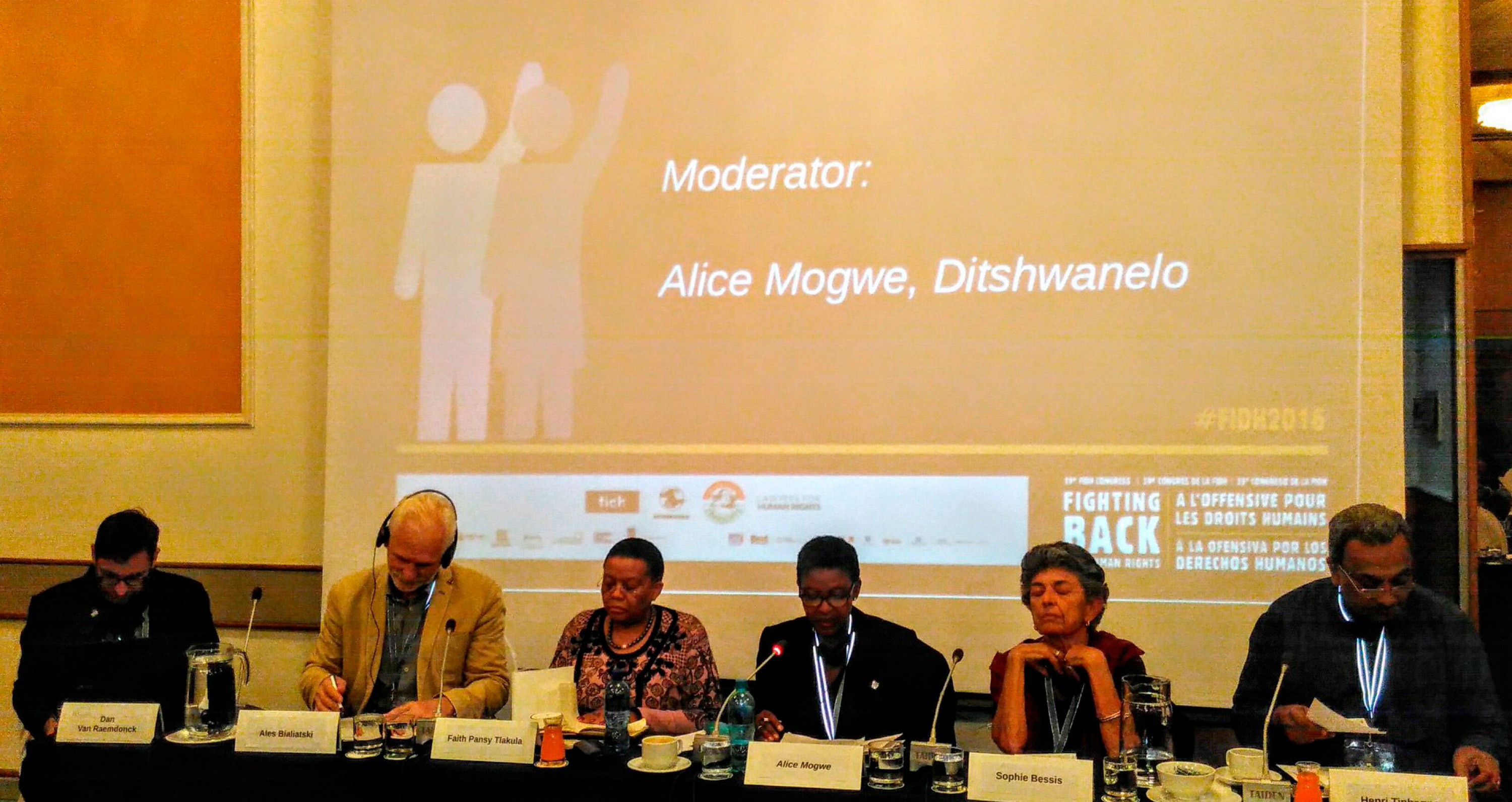Ales Bialiatski: Russia rapidly returning to Soviet Union, which inevitably affects its neighbors

Ales Bialiatski and his colleagues at the 39th FIDH Congress in Johannesburg, South Africa. 23 August 2015
Ales Bialiatski, chairman of the Human Rights Center “Viasna”, spoke yesterday at FIDH Congress in Johannesburg as part of a session entitled “Invoking morals, religious or traditional values to build a new world order: States opposing human rights principles”.
The activist’s speech focused on Russia’s strategic policies challenging the universality of human rights. Describing the situation in Eastern Europe, Bialiatski spoke about the concept of the ‘Russian World’ as the ideological background of modern Russia, which affects its principles of communication with its neighbors in the former Soviet Union and other European countries.
Here are some excerpts from Bialiatski’s speech:
“In 1989, Francis Fukuyama wrote his famous article which predicted the “end of history.” In fact, in Eastern Europe, history is not over. Earlier tragic pages of our history have caused new ones. The largest country in the region, Russia, is rapidly returning to the USSR. Revisionism and even Stalinism are becoming more popular in Russia. Political prisoners, destroying the protest movement, stronger pressure on civil society, stringent legislation on non-governmental organizations, elimination of NGOs and independent media, control of the Internet are transforming Russia in an unfree country.
Shrinking freedom space greatly affects the neighboring countries. Belarus, Kyrgyzstan and Kazakhstan are simply copying Russia’s repressive laws relating to media and non-governmental organizations. Disrespect for international agreements and human rights protection mechanisms has become commonplace in today’s Russia and other post-Soviet countries with authoritarian regimes.
Inciting military conflicts with neighboring countries has created several ‘gray zones’ in East Europe (Transnistria, Abkhazia, Ossetia, Crimea, Eastern Ukraine), where domestic and international human rights mechanisms do not function.
European liberal values, human rights and multiculturalism are opposed by the concept of ‘Russian World’, which is the basis of modern Russian ideology. The Russian World defines Russia’s sphere of influence on the neighboring post-Soviet countries and other European states, where the official Moscow are actively working through propaganda channels, financing extreme right and extreme left-wing political forces, bribing significant political figures on the European political scene. Russia is destabilizing the European system of values and cleverly plays on the weaknesses of individual European countries.
The rapid deterioration in the human rights situation in Russia has had an inevitable impact on its neighbors and also degrades the human rights situation in the post-Soviet countries.
Der Spiegel named its recent interview with famous Russian writer Lyudmila Ulitskaya “Farewell to Europe!”
Will this verdict be as relevant for Belarus and other former Soviet countries?”
FIDH’s 39th Congress is taking place from 23 to 27 August in Johannesburg, South Africa. The Forum has brought together 178 member organizations and more than 400 human rights defenders from around the world to enable them to exchange views on effective methods of struggle for human rights, taking into account the adverse and often dangerous conditions of their work, and to take steps to develop a strategy that would ensure that civil society a leading role in the development of society.

















